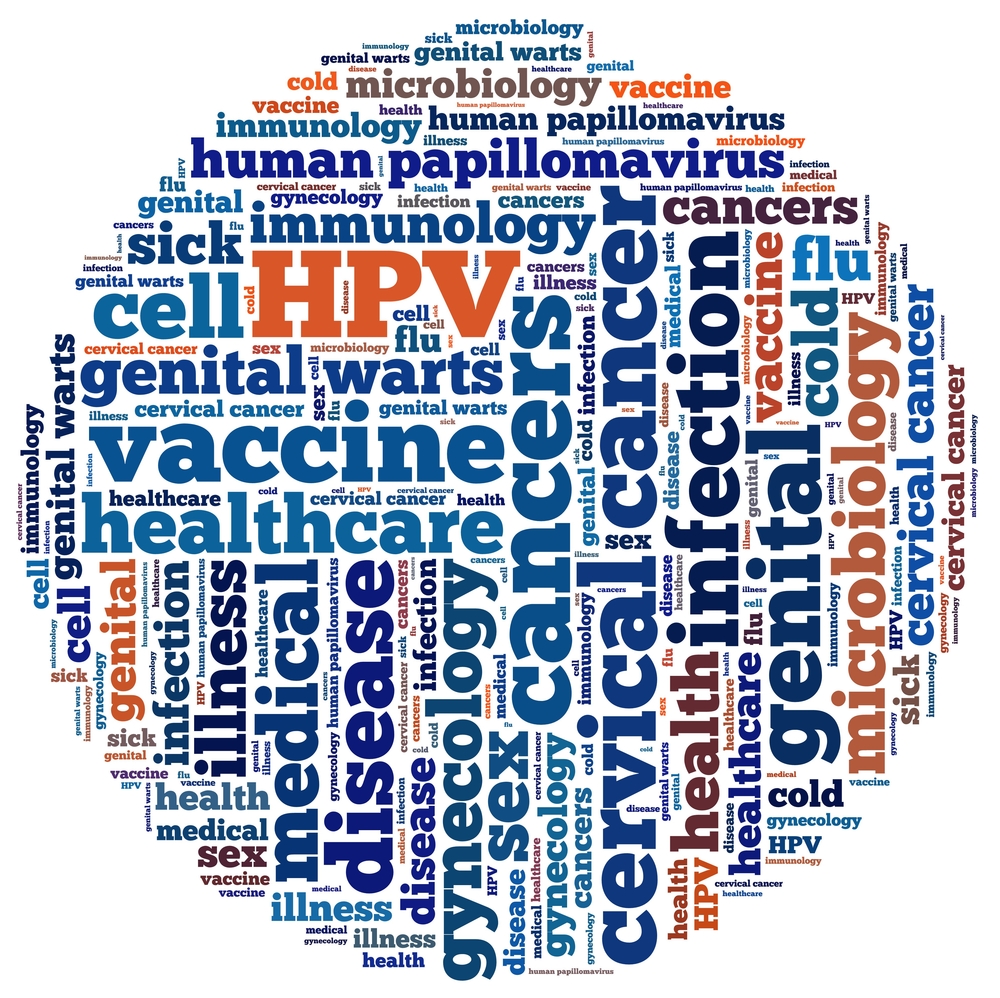The month of June is dedicated to HPV and cervical cancer awareness. In our guest blog series, Jessica Reed, Quality Improvement Manager at Maine Quality Counts, shares important facts and information about the HPV vaccine.

The conversations providers and clinical staff have with parents and adolescents about HPV vaccinations needs to be about cancer prevention. We have a vaccine that can prevent cancer. I have traveled all over the state of Maine presenting about HPV vaccinations for the Maine Area Health Education Center (AHEC) Network, and this is the message I talk about during these presentations.
From the CDC slide deck “You Are the Key” (see link below), the CDC estimated that during 2009 to 2013, HPV caused about 31,500 cancers in the United States each year, with 19,400 cancers in women and 12,100 cancers in men. Most HPV-associated cancers in women were cervical cancers; in men most were oropharyngeal cancers. The cellular types include carcinomas of the cervix and squamous cell carcinomas of the vagina, vulva, penis, anus, rectum, and oropharynx.
In clinical practice it is critical we change the way we talk about the HPV vaccine with our patients and families. The CDC states that the “most effective recommendation for HPV vaccination is when HPV vaccine is recommended in the same way and on the same day as the other vaccines recommended for girls and boys at ages 11 and 12 years.” We should also state what these vaccines will protect a child from meningitis, HPV cancers, and pertussis. We now have research that shows the younger a child receives the HPV vaccine, the better protection they have against HPV viruses (CDC guidelines state HPV vaccination can start at age 9, I see it most often given in practice around 11-12 years of age for both boys and girls).
We have a vaccine that will prevent cancer so our children will not have to experience the difficult, emotionally devastating, life-changing moment of an HPV-related cancer diagnosis. I have been with family members when they have received the news of a cancer diagnosis, and life will never be the same again. I have also met with hundreds of cancer patients and families in my past career experiences, and I know that those with HPV-associated cancers would not have hesitated to get a vaccine. Please read and explore the links below to educate yourself and others about the importance of getting the HPV vaccine.
Want more information? Here are some resources from Jessica:
Centers for Disease Control and Prevention
National HPV Vaccination Roundtable
HPV Vaccination Resource Clearinghouse
The National HPV Vaccination Roundtable Provider Training Task Group built and maintains the HPV Vaccination Resource Clearinghouse. The clearinghouse features patient and provider education tools to increase HPV vaccination awareness and uptake. These tools include:
• Printable educational materials
• Vaccine information statements
• Toolkits
• Multimedia
Are you interested in writing a guest blog post for Maine Cancer Foundation? Please e-mail Ashley, ashley@mainecancer.org
